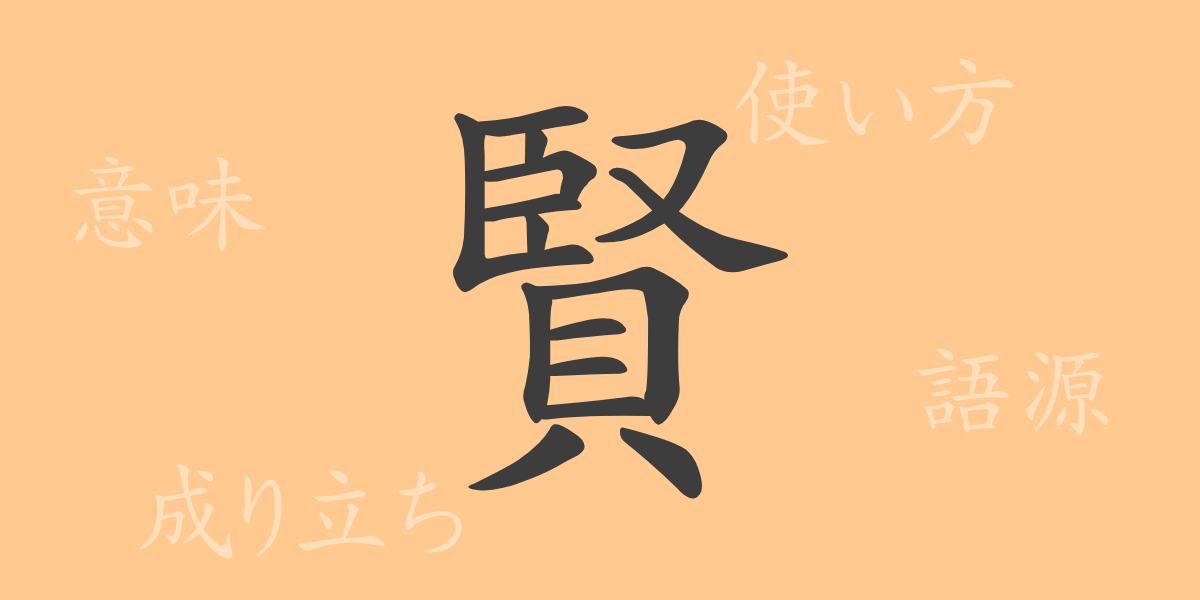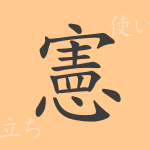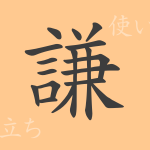The rich expressiveness of the Japanese language is supported by the deep meanings and histories of numerous kanji characters. Among them is the commonly used kanji “賢(けん, ken),” which frequently appears in daily life. This article delves into the charm of the character “賢(けん, ken),” exploring its origins, modern usage, and more. Let’s examine this character in detail so that readers can become more familiar with “賢(けん, ken).”
Origins of 賢(けん, ken)
The kanji “賢(けん, ken)” was developed during the evolution of characters in ancient China. This character is composed of the part “貝(かい, kai),” meaning shell, and “人(ひと, hito)” or “儿(じん, jin),” representing a person. In ancient China, shells were used as currency, and possessing wealth was seen as a symbol of wisdom and capability. Thus, “賢(けん, ken)” came to represent wisdom and intelligence through the possession of wealth.
Meanings and Usage of 賢(けん, ken)
The kanji “賢(けん, ken)” means “wise,” “intelligent,” and “virtuous.” A person described as “賢(かしこい, kashikoi)” is not only wise but also morally superior. In modern Japanese, “賢者(けんじゃ, kenja)” (wise person), “賢明(けんめい, kenmei)” (wisdom), and “賢い選択(かしこいせんたく, kashikoi sentaku)” (wise choice) are commonly used expressions, showing respect for a person or their actions.
Readings, Stroke Count, and Radical of 賢(けん, ken)
The kanji “賢(けん, ken)” provides clues to its meaning through its readings and components.
- Readings: On’yomi (音読み) is “ケン(けん, ken),” and Kun’yomi (訓読み) is “かしこい(kashikoi).”
- Stroke count: “賢(けん, ken)” consists of 16 strokes.
- Radical: The radical is “貝(かい, kai),” which groups it with characters related to shells and wealth.
Idioms, Proverbs, and Phrases Using 賢(けん, ken)
Idioms, proverbs, and phrases containing “賢(けん, ken)” reflect its deep meaning within the Japanese language. For example, “賢者の石(けんじゃのいし, kenja no ishi)” symbolizes an unattainable dream or ideal, and “賢明な判断(けんめいなはんだん, kenmei na handan)” refers to a thoughtful and rational decision. Additionally, “賢婦人(けんふじん, kenfujin)” praises a wise woman who maintains the household.
Conclusion About 賢(けん, ken)
The kanji “賢(けん, ken)” holds significant meaning beyond its mere character form, deeply rooted in Japanese culture and language. Understanding its origin and modern usage reveals the rich nuances it carries. Wise actions and thoughtful decisions have always been highly valued in Japanese society. Through the character “賢(けん, ken),” we can reaffirm these values and strive to make wise choices in our daily lives.

























